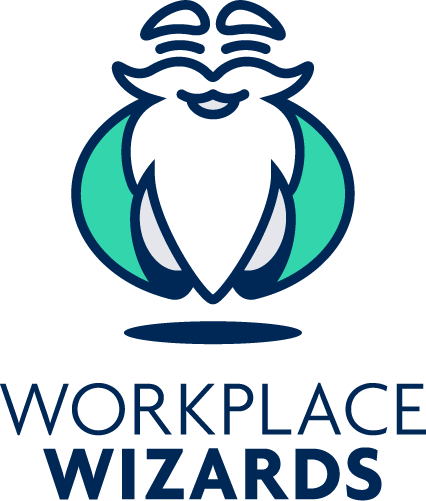Late last year the Fair Work Amendment (Paid Family and Domestic Violence Leave) Bill 2022, was passed by Parliament into law. This amendment to the Fair Work Act 2009 (Cth) (“FW Act”) changed the then existing provisions for family domestic and family violence leave as outlined by the National Employment Standards (NES).
This article will go through the details of the changes and how they work. Keep reading to find out more and where to go for more information and support.
WHAT IS THE CHANGE?
The National Employment Standards (NES) are a set of minimum standards that must be given to all employees in Australia – regardless of the applicable award, registered agreement or employment contract that applies. It’s important to note that casual employees, however, only get some entitlements under the NES. There are certain state/territory laws that provide them with eligibility for entitlements such as long service leave, and there are also conditions that must be met for casual employees to access entitlements such as flexible work requests and parental leave – you can find more information in our article about employment terms & conditions and our free guide to casual employment entitlements.
As the NES entitlements are the minimum, employment contracts, agreements, awards, or any other workplace instrument (including workplace policies and procedures) can’t provide employees with conditions that are ‘less’ than what is set out in the NES.
The entitlement for paid family and domestic violence leave (“FDV leave”) is found within the NES. Before the introduction of this new amendment, employees could request a maximum of 5 days unpaid family and domestic violence leave within a 12-month period, only accessible by employees that met certain conditions. This new Bill amends this entitlement so that all employees – including casuals – can access 10 days of paid family and domestic violence leave within a 12-month period.
Further, the 10 days of leave are provided upfront from the employee’s commencement date, and it renews on the employee’s work anniversary. For example, if you had an individual begin employment with you today, they would have access to the 10 days FDV leave from day 1, and it would renew again this time next year and so on. Note that it’s not a leave entitlement that accumulates over time nor is it ‘carried/rolled over’ from one year to the next.
The Bill also expands the definition of ‘family and domestic violence’ to cover behaviour of the concerned employee’s current and former intimate partners and/or their unrelated household members. Existing provisions for the evidence required to be given to the employer by the employee to request FDV leave have not been changed.
WHAT DO I NEED TO DO AND WHEN DOES THE CHANGE TAKE EFFECT?
In summary, these are the changes you need to be aware of:
- Expansion of the leave – it’s 10 days now, not the former 5.
- Change of leave from unpaid to paid – FDV leave used to be unpaid, now employees can request up to 10 days paid FDV leave.
- Change in applicability – casuals are now also able to request FDV leave, and the pay is calculated on their full rate of pay not their base rate.
- Expansion of employee access of FDV leave through the extension of definition to include behaviour of employees former and/or current partners and/or unrelated household members.
These changes came into effect for all non-small businesses from 1 February 2023. Non-small business workplaces are defined as those with 15 or more employees at 1 February 2023. Small businesses – those with less than 15 employees as on 1 February 2023 – can access the paid leave from 1 August 2023. Until then, staff can access unpaid FDV leave.
The most important thing for employers to do in light of these changes is to ensure that all registered employment agreements, employment contracts, and any workplace policies and procedures are updated to reflect the changes. Further, all staff should be made aware of the changes and their new entitlements.
For information on notice and evidence required for accessing the FDV leave, have a look at the Fair Work Ombudsman’s fact sheet here.
NEED MORE SUPPORT?
These changes come on the back of a changing attitude towards family and domestic violence. Once viewed as a ‘private’ matter and not a workplace matter, these changes signal the increasing awareness of the effects of FDV on individuals’ wellbeing in their public facing lives too, including the workplace, and conversely the support that workplaces can offer to employees that are experiencing FDV.
As such, this is a great opportunity to go past the ‘box ticking’ exercise of updating employee contracts, and also review your workplace policies and procedures as a whole to consider whether they’re providing for a workplace environment that is healthy, positive and supportive of all those who work in it. Afterall, a thriving business begins with ensuring your staff – your people – are safe, supported and well.
The Workplace Wizards team can help you not only with further understanding how these changes affect your business and what you’ll have to do to ensure you’re remaining compliant, but also with reviewing existing policies and procedures to ensure your workplace is the best it can be! Contact 0390876949 or support@workplacewizards.com.au today to chat to one our HR and employment law consultants!
1800RESPECT is the national domestic, family and sexual violence counselling, information and support service. If you or someone you know is experiencing, or at risk of experiencing, domestic, family or sexual violence, call 1800RESPECT on 1800 737 732 orvisit 1800RESPECT.org.au. This service can also provide confidential information about what it means to be experiencing domestic, family or sexual violence.



0 Comments Leave a comment
Comments are closed.